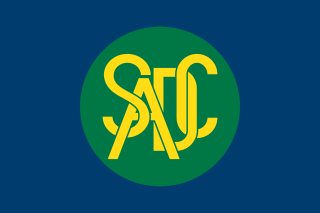
The economy of Botswana is currently one of the world's fastest growing economies,averaging about 5% per annum over the past decade. Growth in private sector employment averaged about 10% per annum during the first 30 years of the country's independence. After a period of stagnation at the turn of the 21st century,Botswana's economy registered strong levels of growth,with GDP growth exceeding 6-7% targets. Botswana has been praised by the African Development Bank for sustaining one of the world's longest economic booms. Economic growth since the late 1960s has been on par with some of Asia's largest economies. The government has consistently maintained budget surpluses and has extensive foreign-exchange reserves.

Southern Africa is the southernmost region of Africa. No one definition is agreed upon,but some groupings include the United Nations geoscheme,the intergovernmental Southern African Development Community,and the physical geography definition based on the physical characteristics of the land.

The Southern African Development Community (SADC) is an inter-governmental organization headquartered in Gaborone,Botswana.

The United Nations Economic Commission for Africa was established in 1958 by the United Nations Economic and Social Council to encourage economic cooperation among its member states following a recommendation of the United Nations General Assembly.

The Organisation of African,Caribbean and Pacific States (OACPS) is a group of countries in Africa,the Caribbean,and the Pacific that was created by the Georgetown Agreement in 1975. Formerly known as African,Caribbean and Pacific Group of States (ACP),the organisation's main objectives are sustainable development and poverty reduction within its member states,as well as their greater integration into the world's economy. All of the member states,except Cuba,are signatories to the Cotonou Agreement with the European Union.

The Southern African Development Coordination Conference (SADCC),the forerunner of the Southern African Development Community (SADC),was a memorandum of understanding on common economic development signed in Lusaka,Zambia,on 1 April 1980. It is formalised as the Lusaka Declaration ratified by the nine signing states. Some of the main goals for the Member States were to be less dependent on apartheid South Africa and to introduce programmes and projects which would influence the Southern African countries and whole region.

The African Free Trade Zone (AFTZ) is a free trade zone announced at the EAC-SADC-COMESA Summit on 22 October 2008 by the heads of Southern African Development Community (SADC),the Common Market for Eastern and Southern Africa (COMESA) and the East African Community (EAC). The African Free Trade Zone is also referred to as the African Free Trade Area in some official documents and press releases.
The Trade and Development Bank (TDB),formerly the PTA Bank,is a trade and development financial institution operating in eastern and southern Africa. TDB is the financial arm of the Common Market for Eastern and Southern Africa (COMESA),although membership is open to non-COMESA states and other institutional shareholders.
The Southern African Regional Universities Association was established in 2005 as a membership based association for the 66 public universities in the 15 countries of the Southern African Development Community (SADC).

The Southern African Power Pool (SAPP) is a cooperation of the national electricity companies in Southern Africa under the auspices of the Southern African Development Community (SADC). The members of SAPP have created a common power grid between their countries and a common market for electricity in the SADC region.

The Common Market for Eastern and Southern Africa (COMESA) is a regional economic community in Africa with twenty-one member states stretching from Tunisia to Eswatini. COMESA was formed in December 1994,replacing a Preferential Trade Area which had existed since 1981. Nine of the member states formed a free trade area in 2000,with Rwanda and Burundi joining the FTA in 2004,the Comoros and Libya in 2006,Seychelles in 2009 and Tunisia and Somalia in 2018.
Tourism in Zambia relates to tourism in the African nation Zambia. The tourism industry is a major and growing industry in Zambia. Zambia has more than 2500 lions along with several National parks,waterfalls,lakes,rivers,and historic monuments. Zambia has been involved in several agreements on tourism with nations like Uganda and Kenya. Uganda Ministry of Tourism and Arts said Zambia is a model in tourism in Africa. Zambia Tourism Agency (ZTA) has partnered with the Government through the Ministry of Tourism and private sector to enhance the marketing aspect in the tourism industry.
Science and technology in Botswana examines recent trends and developments in science,technology and innovation policy in this country. The Republic of Botswana was one of the first countries of the Southern African Development Community (SADC) to adopt a science and technology policy in 1998. This was later updated in 2011.
This article examines trends and developments in science and technology in Malawi.
This article examines trends and developments in science and technology in Zimbabwe since 2009.
Science and technology in Tanzania describes developments and trends in higher education and science,technology and innovation policy and governance in the United Republic of Tanzania since the turn of the century.
ZEP-RE is a specialised institution of the Common Market for Eastern and Southern Africa (COMESA) created under charter. The Company is currently headquartered in Nairobi,Kenya.

Dorothy (Ng’ambi) Tembo is a Zambian economist and trade and development expert. She is the deputy executive director of the International Trade Centre (ITC),a joint agency of the United Nations and the World Trade Organization.









